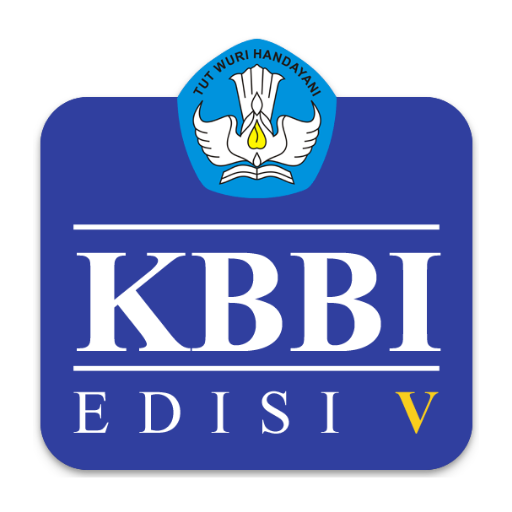CITIZENS INVOLVEMENT AS A CONFLICT RESOLUTION EFFORT IN GENERAL ELECTIONS
DOI:
https://doi.org/10.36706/jbti.v11i1.3Keywords:
Conflict Resolution, Citizens, General ElectionsAbstract
Konflik dalam pemilu merupakan sebuah keniscayaan berdasarkan sejarah pemilu di Indonesia, perdebatan dari pra pemilu hingga pasca pemilu kerap mewarnai pemilu di Indonesia, konflik antar elite politik telah mengakibatkan konflik di masyarakat umum. Urgensi kesadaran politik elite politik untuk mengutamakan bangsa dan negara ternyata belum mampu terwujud secara maksimal. Kondisi ini mendorong munculnya gerakan alternatif yang memberikan kesadaran akan pentingnya mewujudkan pemilu yang aman. Penelitian ini menggunakan studi literatur untuk mengkaji pandangan-pandangan alternatif berupa gerakan warga untuk menjadi solusi konflik politik saat pemilu. Hasil penelitian menunjukkan bahwa warga negara merupakan kelompok yang paling berpengaruh terhadap situasi politik pada masa pemilu, keterampilan warga negara dalam menganalisis situasi politik berdampak pada tindakan para elit politik untuk selalu mengedepankan nilai-nilai perdamaian secara umum. pemilu. Semakin banyaknya generasi muda yang terhasut kampanye hitam membuat mereka mudah tergerak oleh elite politik sesuai kemauan politiknya. Atas dasar itu, peningkatan pemahaman warga negara terhadap nilai-nilai demokrasi menjadi aspek yang sangat penting sebagai upaya penyelesaian konflik pada masa pemilu.
Conflict in general elections is a necessity based on the history of general elections in Indonesia, debates from pre-election to post-election often color general elections in Indonesia, conflicts between political elites have resulted in conflicts in the general public. The urgency of the political elite's political awareness to prioritize the nation and the state has actually not been able to materialize optimally. This condition encourages the emergence of an alternative movement that provides awareness of the importance of realizing safe general elections. This study uses literature studies to examine alternative views in the form of citizen movements to be a solution to political conflicts during general elections. The results of the study show that citizens are the most influential group over the political situation during the general election period, the skills of citizens in analyzing political situations have an impact on the actions of the political elite to always prioritize the values of peace in general elections. The more young citizens to be instigated by black campaigns make it easy for them to be moved by the political elite according to their political will. On that basis, increasing citizens' understanding of democratic values is a very important aspect as an effort to resolve conflicts during the general election period.
Downloads
References
Anggraini, S., Afrizal, A., & Indradin, I. (2019). Regulasi Konflik Pemilu (Studi Kasus Resolusi Konflik Pilkada 2015 dan Persiapan Pemilu 2019 di Kabupaten Sijunjung). Jurnal Antropologi: Isu-Isu Sosial Budaya, 21(2), 177-184.
Arceneaux, K., & Vander Wielen, R. J. (2017). Taming intuition: How reflection minimizes partisan reasoning and promotes democratic accountability. Cambridge University Press.
Arkorful, H., Hilton, S. K., & Awaah, F. (2023). Community engagement in development projects: government versus private funded projects in Ghana. Journal of Enterprising Communities: People and Places in the Global Economy, 17(3), 708-727.
Arofah, F. A. F. (2016). Komisi Pemilihan Umum (KPU) vs Badan Pengawas Pemilu (BAWASLU). Jurnal Transformative, 2(1), 29-42.
Bakar, D. M., Hidayat, E. R., & Malik, I. (2022). Implications of Political Trust, Kinship Politics, and Political Participation (Makassar City Election in 2020). Politik Indonesia: Indonesian Political Science Review, 7(1), 51-68.
Barrett-Maitland, N., & Lynch, J. (2020). Social media, ethics and the privacy paradox. Security and privacy from a legal, ethical, and technical perspective, 49.
Bilali, R., & Vollhardt, J. R. (2019). Victim and perpetrator groups’ divergent perspectives on collective violence: Implications for intergroup relations. Political Psychology, 40, 75-108.
Bonneau, D. D., & Zaleski, J. (2021). The effect of California’s top-two primary system on voter turnout in US House Elections. Economics of Governance, 22(1), 1-21.
Botchway, T. P. (2018). Civil society and the consolidation of democracy in Ghana’s fourth republic. Cogent Social Sciences, 4(1), 1452840.
Buchholz, B. A., DeHart, J., & Moorman, G. (2020). Digital citizenship during a global pandemic: Moving beyond digital literacy. Journal of Adolescent & Adult Literacy, 64(1), 11-17.
Christiano, T. (2018). The rule of the many: Fundamental issues in democratic theory. Routledge.
Davies, A. E. (2021). Money politics in the Nigerian electoral process. Nigerian Politics, 341-352.
Degerman, D., Flinders, M., & Johnson, M. T. (2020). In defence of fear: COVID-19, crises and democracy. Critical Review of International Social and Political Philosophy, 1-22.
Galston, W. A. (2018). The populist challenge to liberal democracy. Journal of Democracy, 29(2), 5-19.
Gastil, J., & Wright, E. O. (2018). Legislature by lot: Envisioning sortition within a bicameral system. Politics & Society, 46(3), 303-330.
Giroux, H. A. (2017). White nationalism, armed culture and state violence in the age of Donald Trump. Philosophy & Social Criticism, 43(9), 887-910.
Hanotiau, B. (2020). Complex Arbitrations: Multi-party, Multi-contract and Multi-issue. Kluwer Law International BV.
Hartwell, L. (2019). Conflict resolution: Lessons from the Dayton peace process. Negotiation Journal, 35(4), 443-469.
Honneth, A. (2017). Is there an emancipatory interest? An attempt to answer critical theory's most fundamental question. European Journal of Philosophy, 25(4), 908-920.
Indarto, E. K., & Fikri, S. (2022). Discourse on Procedural Democracy: Study of the “Empty Box” Phenomenon in Regional Head Elections. International Journal of Social Science Research and Review, 5(12), 580-586.
Issacharoff, S. (2020). The corruption of popular sovereignty. International Journal of Constitutional Law, 18(4), 1109-1135.
Johnson, A. R. (2022). On the Uses and Abuses of History for Politics. University of California, Santa Barbara.
Kisby, B. (2017). 'Politics is ethics done in public': exploring linkages and disjunctions between citizenship education and character education in England. Journal of Social Science Education, 16(3), 7-20.
Kodiyat, B. A., Siagian, A. H., & Andryan, A. (2020). The Effect of Centralistic Political Party Policies in Selection Of Regional Heads in Medan City. Indonesian Journal of Education, Social Sciences and Research (IJESSR), 1(1), 59-70.
Kriesi, H., Lavenex, S., Esser, F., Matthes, J., Bühlmann, M., & Bochsler, D. (2013). Democracy in the Age of Globalization and Mediatization (1st ed.). London: PALGRAVE MACMILLAN.
Kuhlthau, C. C. (2002). Teaching the Library Research Process. Scarecrow Press.
Lele, G. (2021). Asymmetric decentralization, accommodation and separatist conflict: lessons from Aceh and Papua, Indonesia. Territory, Politics, Governance, 1-19.
Mahendra, Y. I. (2021). Paradoks Demokrasi di Indonesia Tahun 2014-2019: Analisis Prosedural dan Substansial. Paradigma POLISTAAT: Jurnal Ilmu Sosial dan Ilmu Politik, 4(1), 27-47.
Malafaia, C., Neves, T., & Menezes, I. (2021). The gap between youth and politics: Youngsters outside the regular school system assessing the conditions for be (com) ing political subjects. Young, 29(5), 437-455.
Mansbridge, J. J. (2018). A deliberative theory of interest representation. In The politics of interests (pp. 32-57). Routledge.
Mietzner, M. (2024). The limits of autocratisation in Indonesia: power dispersal and elite competition in a compromised democracy. Third World Quarterly, 1-17.
Okolie, A. M., Nnamani, K. E., Ezirim, G. E., Enyiazu, C., & Ozor, A. C. (2021). Does liberal democracy promote economic development? interrogating electoral cost and development trade-off in Nigeria’s fourth republic. Cogent Social Sciences, 7(1), 1918370.
Ordukhanyan, E. (2020). The Consociational Theory And Challenges To Democratization In South Caucasus Plural Societies. International Journal of Scientific Technology Research, 9(1), 2276-2282.
Rothstein, B. (2019). Epistemic democracy and the quality of government. European Politics and Society, 20(1), 16-31.
Sorensen, G. (2018). Democracy and democratization: Processes and prospects in a changing world. Routledge.
Sutrisno, C. (2017). Partisipasi Warga Negara Dalam Pilkada. JPK (Jurnal Pancasila dan Kewarganegaraan), 2(2), 36-48.
Tridimas, G. (2023). Inflated Expectations of Democracy: Towards a Systematic Explanation. In Power and Responsibility: Interdisciplinary Perspectives for the 21st Century in Honor of Manfred J. Holler (pp. 287-304). Cham: Springer International Publishing.
Walters, D. E. (2022). The administrative agon: A democratic theory for a conflictual regulatory state. Yale LJ, 132, 1.
Weiss, J. (2020). What is youth political participation? Literature review on youth political participation and political attitudes. Frontiers in Political Science, 2, 1.
Weiss, J. (2020). What is youth political participation? Literature review on youth political participation and political attitudes. Frontiers in Political Science, 2, 1.
Wilensky, H. L. (2017). Leftism, Catholicism, and Democratic Corporatism:: The Role of Political Parties in Recent Welfare State Development. In The development of welfare states in Europe and America (pp. 345-383). Routledge.
Downloads
Published
How to Cite
Issue
Section
License
Copyright (c) 2024 Rizal Fahmi, Hilal Ramdhani, Hudaya Latuconsina, Sri Jaya Lesmana

This work is licensed under a Creative Commons Attribution-NonCommercial-ShareAlike 4.0 International License.



__.png)
















